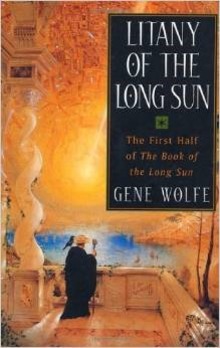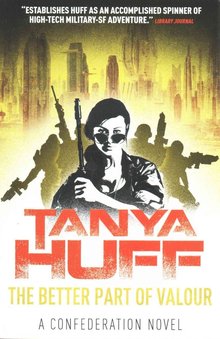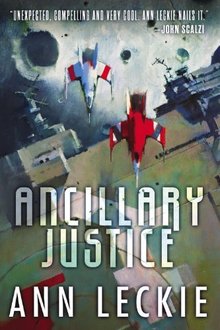Go Big Or Go Home?
 In my last couple of posts (a while ago now) I was looking at small-scale storytelling, first talking about the cozy mystery, and then about whether the “intimate” form of fantasy novel might be that subgenre’s equivalent. I don’t think there’d be much of a disagreement, however, if I suggest that Fantasy and SF are better known – particularly by the general public – for their larger-scale (dare I say epic?) narratives.
In my last couple of posts (a while ago now) I was looking at small-scale storytelling, first talking about the cozy mystery, and then about whether the “intimate” form of fantasy novel might be that subgenre’s equivalent. I don’t think there’d be much of a disagreement, however, if I suggest that Fantasy and SF are better known – particularly by the general public – for their larger-scale (dare I say epic?) narratives.
And speaking of epics, aren’t there really two main subgenres of large-scale narratives in Fantasy and SF? The epic, and the military? With the former most closely associated with Fantasy, and the latter with SF.
 There are almost too many examples of the epic fantasy, starting with the granddaddy of them all, the LOTR trilogy. In order to be considered a true epic, a narrative has to be not only large scale in terms of the number of people and the amount of time involved, but in its far-reaching, large scale consequences. As Tolkien showed us, even ordinary, everyday people who didn’t directly participate in the main action have their ordinary, everyday lives changed.
There are almost too many examples of the epic fantasy, starting with the granddaddy of them all, the LOTR trilogy. In order to be considered a true epic, a narrative has to be not only large scale in terms of the number of people and the amount of time involved, but in its far-reaching, large scale consequences. As Tolkien showed us, even ordinary, everyday people who didn’t directly participate in the main action have their ordinary, everyday lives changed.
Are there epic SF narratives? Zelazny’s Lord of Light? Wolfe’s Book of the Long Sun? Both of those works definitely covered world-changing events, but they’re almost intimate when you consider that because of the nature of the genre, events in an SF narrative can and often do impact on the whole universe. So, is planet-wide impact really “large scale” in SF terms?
Which brings me to what has to be the largest scale of storytelling: military SF. In narratives like David Weber’s Honor Harrington Series, Tanya Huff’s Confederation Novels, or, more recently Ann Leckie’s Ancillary Trilogy, the events of the narrative impact not just on a single world or planet, but on what Niven called “known space.”
 I wonder though. No matter how large the scale, aren’t all narratives, in an essential way, intimate ones? No matter how far-reaching and broad the consequences are, aren’t our stories being are told in an intimate way, through the eyes and via the experiences of a few chosen characters, who form the microcosm of the larger vision?
I wonder though. No matter how large the scale, aren’t all narratives, in an essential way, intimate ones? No matter how far-reaching and broad the consequences are, aren’t our stories being are told in an intimate way, through the eyes and via the experiences of a few chosen characters, who form the microcosm of the larger vision?
Violette Malan is the author of the Dhulyn and Parno series of sword and sorcery adventures (now available in omnibus editions), as well as the Mirror Lands series of primary world fantasies. As VM Escalada, she is writing the upcoming Halls of Law series. Follow her on Twitter, @VioletteMalan.
No matter how large the scale, aren’t all narratives, in an essential way, intimate ones? No matter how far-reaching and broad the consequences are, aren’t our stories being are told in an intimate way, through the eyes and via the experiences of a few chosen characters, who form the microcosm of the larger vision?
Yes! Well, yes with a minor phrasing tweak. If not all narratives, I would say all works of fiction that find large audiences.
We social primates can care about almost anything, as long as we can connect with it on the scale of a being we can understand and bond with. That being doesn’t need to be real, or human, or always realistic — I don’t think we even need to be able to identify with the being by seeing ourselves in it/him/her — but we need to be able to classify it/him/her as a friend.
I really like the title of this post. Last night, in the comment thread on my post about cast size and story dynamics, talk turned to the way long books foster an immersive reading experience of the worldbuilding. Maybe a corollary to “Go Big or Go Home” would be “Go Big; Go Home.”
By the way, on the WFC panel on the intersection of mystery and fantasy, Derek Kunksen raised your discussion of the cozy mystery. It was the next best thing to having you in the room.
Phil Foglio assessed the difference between SF and fantasy:
http://www.airshipentertainment.com/growfcomic.php?date=20070617
(Note that that’s page 1 of a 2-page strip — you’ll need to click “Next” to see the full thing.)
Did that get recorded, Sarah? I’d really love to hear what they’ve been saying on that topic.
I’m not sure. How about something like Olaf Stapledon’s Last and First Men or Star Maker? They seem the opposite of intimate to me, but they are certainly narratives.
Martin, I don’t know whether that one was recorded.
Thomas, Olaf Stapledon is one of the authors I often hear about as an acquired taste precisely because they’re the opposite of intimate. I wish I could remember where I read it in Locus — an author interview, an obituary? — but I’ve seen him described as an author who will always continue to attract a very small number of readers, but whose readership numbers are unlikely ever to grow. I think “chilly” was one of the words used.
And it’s probably my loss, but on the basis of that description, I haven’t made time to read Stapledon.
Sarah: Fiona Paton often talks about how every reader needs to find a “you-shaped door” by which she/he enters the story. Without it, the reader can’t find her way in, and consequently this just isn’t the book for her, no matter how many others love it. It doesn’t have to be a character, though it usually is. Fiona applies this idea to films and TV shows as well.
On the panel, did Derek actually mention me by name? If so, I must thank him for keeping my name out there. You know he’s not only a fellow blogger here at BG, but a personal friend who lives not far away (as Canadian distances go).
Thomas, unlike Sarah, I’ve read Stapleton, but I have to admit it was so long ago I don’t retain any significant memory of it. I don’t find him on my shelves, so whatever impact he had it was insufficient for me to keep the books. I know he’s present in some of my older anthologies.
To be honest, however excellent the writing, I find many writers of Stapleton’s vintage “chilly”.
Would any of you apply that adjective to James Tiptree Jr.?
I would definitely apply that description to some of Tiptree, but in his/her case it’s a chill that is experienced by characters and readers at a very human level, and with Stapledon, the chill is so vast (and grand, almost) that it barely has anything to do with beings as infinitesimal and insignificant as we are. If that makes any sense.
And it looks like someone should do a BG piece on Olaf. He certainly isn’t everyone’s cup of iced tea, but my God, what a writer!
Thomas, I take your point about Tiptree; the chill is definitely personal.
The idea of a post on Stapledon is a good one, but it obviously won’t be done by me.
In the Stapledon that I read, at least (Last & First Men and Star Maker), he seemed less concerned with telling a story than with writing a sort of fictional future history of the entire cosmos with only the most tenuous of token attempts at including a “you-shaped door” in the framing device.
But what magnificent stuff — you could make an entire career as an SF novelist by opening Star-Maker to a random page, stabbing your finger down blindly, and using that as the basis for a novel.
Sounds like Stapledon responded totally differently to the realizations that made Lovecraft run wild. During Lovecraft’s lifetime, physicists figured out that the universe was much, much larger and older than it had been believed to be. Stapledon was born a little earlier, and lived a decade or so longer. For whatever reason, it sounds like he was normalizing a sense of scale in which human experience is so small as to be barely relevant.
Whether it’s congenial to read or not, it does sound existentially impressive.